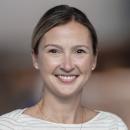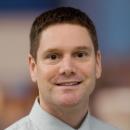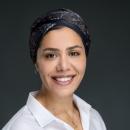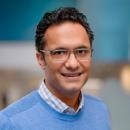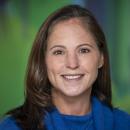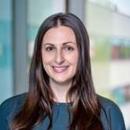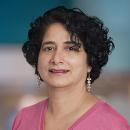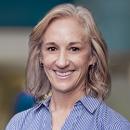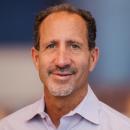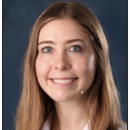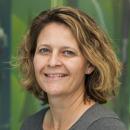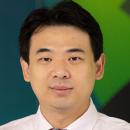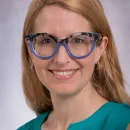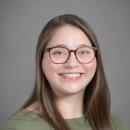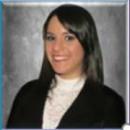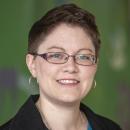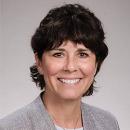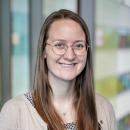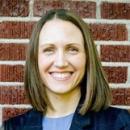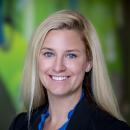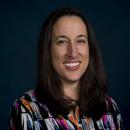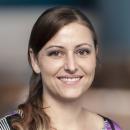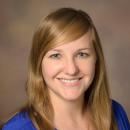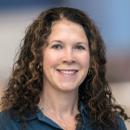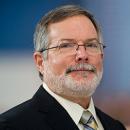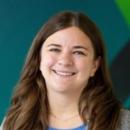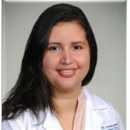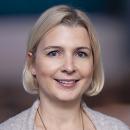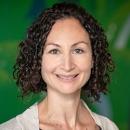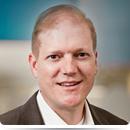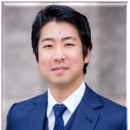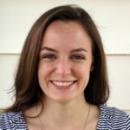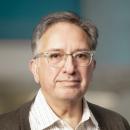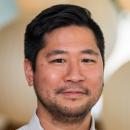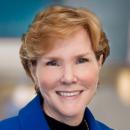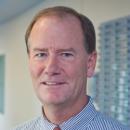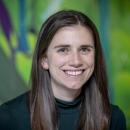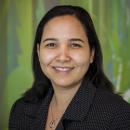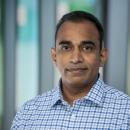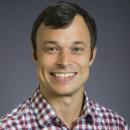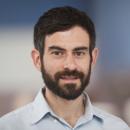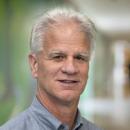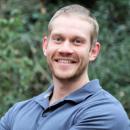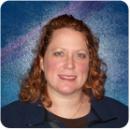
Mission Statement
The mission of our fellowship program is to inspire the next generation of neonatologists to be exemplary clinicians, passionate researchers, and future leaders of our field. We are committed to achieving this through the highest level of education in evidence-based clinical care and outstanding research mentorship for pursuing scholarly passion.
Program Overview
The Neonatal-Perinatal Medicine Fellowship Training Program at the University of Washington and Seattle Children’s Hospital has been committed to training excellent neonatologists and academic leaders since its inception in the 1960s. We believe that shared goals build strong teams. In order to build the best teams, we have created areas of focus for our faculty and fellows, bringing together physicians with common interests for collaborative research, clinical efforts, scientific discovery and scholarship. Our goal is to provide an optimal environment for fellows to fulfill their potential. Our program is designed to ensure ample protected time for scholarly activities and to provide active and individualized mentorship.
Fellowship Goals and Aims
We aim to:
- Educate fellows to provide excellent clinical care for newborns and infants with all levels of illness
- Teach fellows to seek out, interpret, and utilize family-centered and evidence-based medicine when making clinical decisions
- Support fellows in finding and contributing to their scholarly area of interest and passion
- Guide fellows in understanding and applying quality assurance and quality improvement principles to their care
- Train fellows in methods to optimize communication in interprofessional settings and with families under their care
- Foster fellows in their journey to become independent, self-driven, life-long learners
- Provide a teaching environment that fosters and promotes diversity, ensuring optimal care for patients and their families
- Produce leaders in the field of Neonatology
About Seattle
The University of Washington (UW) fellowship program is located in Seattle, a great place to live! Seattle is a beautiful coastal city that experiences all four seasons. Fellows and faculty live all over the city, and surrounding areas, everything from urban high-rise apartments to rural single-family homes are within driving distance to our clinical sites. The city is known for its evergreen natural habitat and stays vibrantly green year-round. The many parks, trails, and outdoor public spaces provide ample opportunity to get outside and connect with nature. In the city, public transit is robust. All fellows are offered a complimentary bus pass and access to the light rail system. Both hospitals sit along the Burke-Gilman trail, a broad paved thoroughfare for bikers, joggers, and walkers to get around the city. The greater Seattle area boasts access to lakes, the Puget Sound, the Pacific Ocean, islands, forests, and mountains within 1-2 hours' drive. Fellows with children will enjoy the family-friendly nature of the city. Seattle is a very pet friendly city with many dog parks and restaurants; you may even see people taking their cats on hikes.
Things to do when visiting Seattle:
Clinical Training
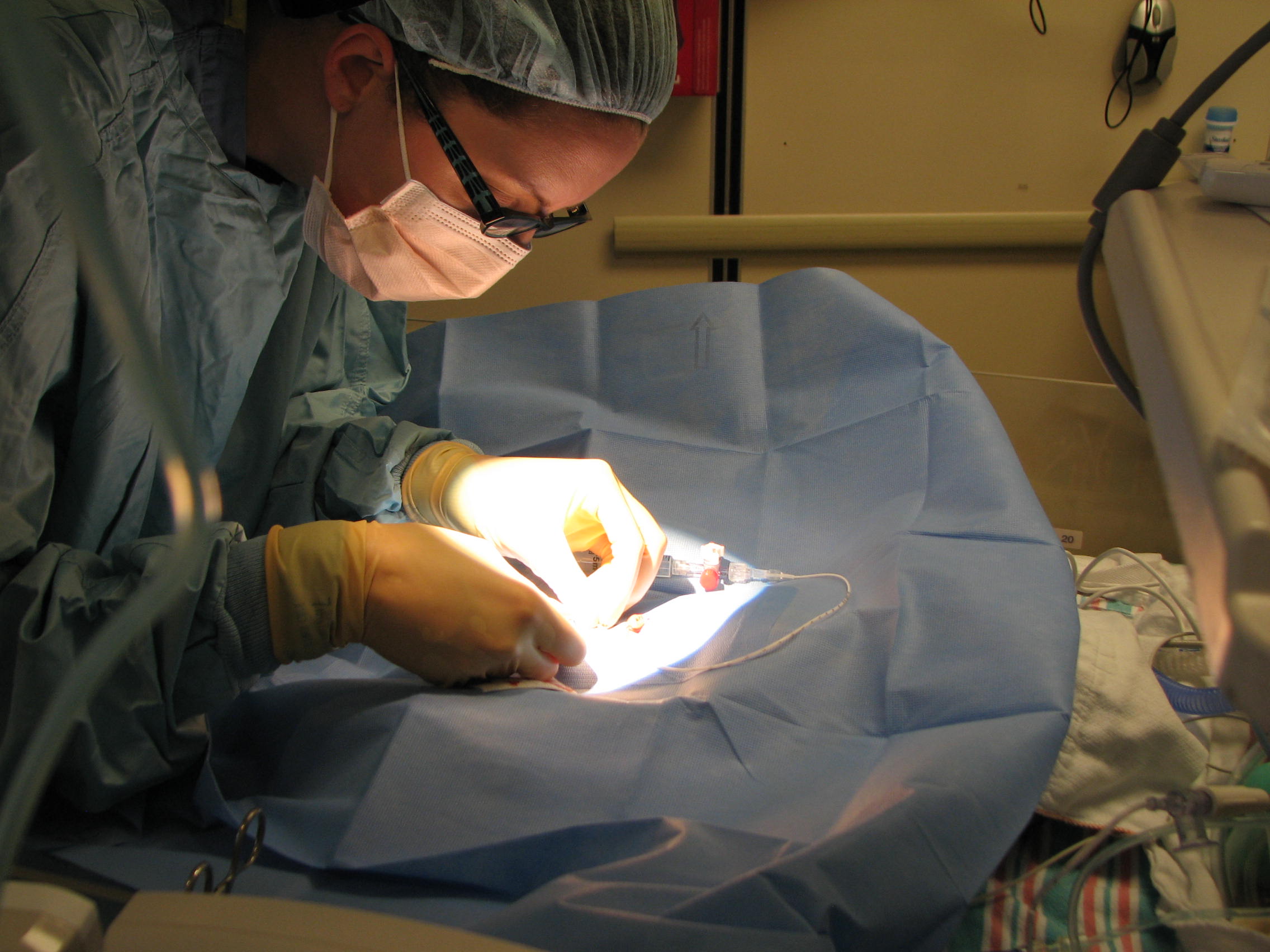
During their three years of training, fellows spend a total of 14 months on clinical service: 11.5 months on rotations split between the two teaching hospital NICUs (Seattle Children’s Hospital & University of Washington Medical Center); 2.5 months on elective rotations including perinatology, cardiac ICU, perinatology, pediatric anesthesia/pediatric surgery; and two weeks in one of the division's community hospital NICUs. Fellows also attend NICU follow-up clinic to learn from a variety of specialties who care for our NICU graduates. Clinical rotations are generally 2 weeks duration. Night call is in-house at both hospitals and average 50 nights per year, in line with the national median for night call. Senior fellows craft the schedule for the group. Four weeks of vacation per year help provide time for rest and travel.
Fellows begin their training with an in-depth orientation and regional bootcamp. During the first months on service, fellows focus on expanding their clinical knowledge base and skills. They participate as learners and teachers in procedural skills, rounds, ECMO, high-risk deliveries, and family meetings. As they progress in training, fellows take on progressively more leadership roles, developing higher-level patient management and teamwork skills. Fellows act as front line physicians for patients on ECMO and in the first weeks of our smallest extremely preterm infants to learn the nuanced clinical decision making needed to care for these patients. In the third year, they complete this transition, including learning the many roles of the attending physician through pre-attending rotations.
Our Fellowship Program offers special training in Point of Care Ultrasound (POCUS) with a multidisciplinary approach utilizing experts in Anesthesiology, Radiology, Emergency Medicine and Pediatric Intensive Care. Training in POCUS gives our fellows the opportunity to improve their bedside diagnostic tools and their procedural success as they develop their clinical skills throughout their fellowship. This multidisciplinary team also supports opportunities for research both within and outside of the division. POCUS machines are available at both of our academic NICUs and available for use by all fellows and faculty when needed for patient care.
Our clinical environment focuses on the interprofessional team approach, valuing each person’s contributions to the patients' care. Fellows are key members of our teams, working closely with attendings, residents, Advanced Practice Providers (APPs), and many others to provide the very best care for our patients.
Fellowship training in Neonatology at the UW includes the following rotations:
Primary Clinical Rotations
- University of Washington Neonatal Intensive Care Unit (UWMC NICU). University of Washington Neonatal Intensive Care Unit (UWMC NICU). Fellows spend approximately half of their clinical time in the UWMC NICU, which specializes in the care of preterm infants and infants of complex pregnancies. UWMC is the tertiary care center and preferred delivery location for high-risk pregnancies and infants with known severe congenital anomalies across the Pacific Northwest region due to its robust Maternal-fetal Medicine services. Fellows will gain ample experience in the delivery room care and initial stabilization of infants with congenital anomalies. Fellows provide empathic prenatal counseling for those expecting extremely preterm deliveries or deliveries impacted by significant infant illness; they also support residents in consults for families at risk for moderately preterm delivery. Fellows are critical leaders on rounds, in education, and clinical care. The UWMC NICU's "Extremely Preterm Program" is a regional initiative with a dedicated and consistent approach to the care of the highest risk patients born at 22-25 weeks' gestation. A tight-knit team of nurses, fellows, APPs, and faculty strive to provide the best possible care for these fragile infants.
- Seattle Children's Hospital Neonatal Intensive Care Unit (SCH NICU). Seattle Children's Hospital Neonatal Intensive Care Unit (SCH NICU). Fellows spend approximately half of their clinical time in the SCH NICU, a quaternary referral center for a 4-state area (Washington, Alaska, Montana, and Idaho). Fellows care for newborns with respiratory failure, neurologic diseases, inborn errors of metabolism, congenital heart disease, and complex congenital anomalies, and conditions requiring surgical care. Fellows lead rounds daily for their clinical team. They perform, teach, and oversee procedures for a wide range of critically ill patients. Fellows are integral to managing the care of infants with a multi-system disease, diagnostic challenges, and prognostic uncertainty. The SCH NICU has the region’s only neonatal ECMO program and neonatal dialysis program, supplying outstanding learning opportunities for fellows pursuing careers in Level 4 NICUs. The Seattle Children’s NICU houses the Neuro-NICU program, an interdisciplinary program dedicated to optimizing outcomes for infants affected by hypoxic-ischemic encephalopathy, seizures and an array of congenital and acquired neurologic diseases. Our Bronchopulmonary Dysplasia team provides many opportunities to improve the care for infants with severe BPD and expand our knowledge of this patient population. And the Congenital Diaphragmatic Hernia program is a multi-disciplinary team that serves as a regional referral center for infants with CDH. Fellows participate in these team meetings while on clinical service and become long-term team members when their research interests align.
Selective Rotations
- Perinatology. First-year fellows spend time with the Maternal-Fetal Medicine team at the University of Washington Medical Center and the Seattle Children's Prenatal Diagnosis and Treatment Program. This rotation provides exposure to the many high-risk OB clinics and insight into high-risk obstetrical care, as well as opportunities to learn how to provide empathic prenatal counseling to families expecting infants with congenital malformations.
- Cardiac Intensive Care Unit. During training, fellows spend 4 weeks time on a cardiac intensive care rotation in the Cardiac ICU at SCH. The experience includes both pre and post-operative cardiac ICU care. Infants with cardiac disease complicated by prematurity or significant non-cardiac anomalies are co-managed by the CICU and NICU.
- Community Neonatology: Senior fellows have the opportunity to participate for two weeks in neonatal intensive care at one of the division's community sites, Providence Regional Medical Center Everett (PRMCE) NICU, a level III NICU which cares for infants with critical illness and prematurity.
- NICU Neurodevelopmental Follow-Up: The Infant Development Follow-Up Clinic (IDFC) is an interdisciplinary developmental surveillance clinic housed at the University of Washington Institute on Human Development and Disability. First-year fellows gain an introductory experience to this clinic during their first year, learning the role and function of the various subspecialists in NICU follow-up care. During their second year, fellows participate in a one-week developmental rotation (interdisciplinary rotation with inpatient support services, Neurology, Developmental-Behavioral Peds, Early Intervention), as well as additional time in IDFC. The focus of the 3rd year is to learn interdisciplinary developmental assessments and treatments while practicing their skills & preparing for independence. Interested fellows are welcome to complete additional training and clinical rotations in IDFC or participate in developmental research projects with the IDFC faculty.
Seminars, conferences, and courses
Fellows attend weekly core curriculum conferences, including board review, Fellow’s Conference, and twice-weekly division conferences. Fellows actively participate and lead journal clubs, M&M reviews, as well as to co-lead joint clinical conferences with perinatology. Fellows also attend courses in the Seattle Children’s Fellows’ College, which offers a core educational curriculum and career development services for postgraduate fellows in all pediatric medical and surgical programs at Seattle Children’s. Education time is protected time, and fellows are encouraged to hand off clinical duties to attend conferences and seminars. For fellows who would like to build their skills in specific areas, additional training opportunities are offered by both the UW and Seattle Children’s Hospital
As all fellows need to be skilled in quality assurance and quality improvement, we collaborate with other regional fellowship programs and faculty for quarterly education on this important topic. A quarterly Fellows’ Research Curriculum also provides core instruction relevant to fellows with a range of research interests.
Other educational support:
- Local opportunities to present their research and funding to offset costs for attending regional/national conferences
- Every fellow receives a Professional Development Fund that they can use at their discretion to cover educational materials
- Vital Talks communication training to support excellent empathic communication
- Fellows are reimbursed for state medical license fees and required certifications such as NRP and PALS, opportunities to become a resuscitation instructor are abundant
- Fellows have the opportunity to moonlight in the NICU during their 2nd and 3rd years of training
- Up to six credit hours per quarter of classes at the UW are free of charge
- Simulation training is provided to build procedural skills
- A regional boot camp for new fellows
Fellowship Tracks
What is a fellowship track?
We define a ‘track’ as a consolidation of resources and opportunities in an area of scholarly focus. Each of our tracks is supported by a dedicated cadre of outstanding faculty from the University of Washington and Seattle Children’s Hospital. These recognized experts provide fellows with mentorship in their chosen field of scholarly inquiry. Additional faculty mentors, and resources, are available at the University of Washington and/or Seattle Children’s Research Institute. Track opportunities include courses, elective clinical rotations, and matriculation in various certificate or degree programs. Selected fellows may also have the opportunity to pursue a master’s degree if desired, with prior arrangements with the Fellowship Director and the Neonatal Division Head.
What tracks are available?
Our fellowship tracks align with the major areas of interest and expertise within the University of Washington/Seattle Children’s Hospital Division of Neonatology. Our tracks cover a diverse range of scholarly inquiries and provide various options for fellows to choose from. Each track has a record of successful scholarship and productivity involving fellows. Neonatology fellows are allowed to select from any of the established tracks or pursue scholarly activity outside of a defined track in their area of interest. In addition to the tracks below, there are faculty and fellows whose scholarly passions lead them to other areas of work.
Neonatal Neuroscience

Faculty mentors: Sandra Juul MD/PhD, Dennis Mayock MD, Ulrike Mietzsch MD (Co-director, Neuro-NICU), Janessa Law MD, Kendell German MD, Tommy Wood BM BCh, PhD, Mihai Puia-Dumitrescu MD MPH, Sarah Kolnik MD, Sara Neches MD, Nina Natarajan MD (Co-director, Neuro-NICU), Jan Martin MD
Overview: Our Neonatal Neuroscience Program is focused on improving the neurodevelopmental outcomes of high‐risk infants. Components of our program include the Neonatal Neuroscience laboratory in which we carry out basic science studies to better understand mechanisms of brain injury and repair in a variety of neonatal brain injury models (rodents, ferrets and nonhuman primates), and the Brain Research Advancement in Neonatology (BRAIN) team which targets interdisciplinary clinical and translational research.
Core Programs:
- Neonatal neuroscience laboratory (NNL)- Sandra Juul, Tommy Wood, Janessa Law, Sarah Kolnik, Daniel Moralejo, Kylie Corry
- Brain Research Advancement in Neonatology (BRAIN) Team- Janessa Law, Tommy Wood, Mihai Puia-Dumitrescu, Kendell German, Krystle Perez, Ulrike Mietzsch, Sarah Kolnik
- NeuroNICU- Ulrike Mietzsch, Nina Natarajan, Sandra Juul, Jan Martin, Dennis Shaw, Hannah Tully
- Infant Development Follow-Up Clinic (IDFC)/Late and Moderate Preterm Babies Clinic (LAMBs)- Emily Myers, Nina Natarajan, Kendell German, Sara Neches, Marnina Gottesman, Jan Martin
- Eunice Kennedy Shriver Intellectual and Developmental Disabilities Research Center (IDDRC)- Sandra Juul, Tommy Wood, Kendell German
- NICU Registry- Ulrike Mietzsch, Kendell German, Cailin White, Vicky Quach
Ongoing Trials and Collaborations:
- Secondary analyses of Preterm Epo Neuroprotection (PENUT) and High-dose Erythropoietin for Asphyxia and Encephalopathy (HEAL) trials- Sandra Juul, Patrick Heagerty, Dennis Mayock, Bryan Comstock
- Darbepoitin plus IV Iron to Decrease Transfusions While Maintaining Iron Sufficiency (DIVI)- Sandra Juul, Kendell German, Dennis Mayock, Bryan Comstock, Tessa Rue, Sara Neches, Sarah Kolnik, Katie Strobel, John Feltner, Debbie Ng, Rebecca Hoban
- Washington study of Outcomes, Neural Development and Early Risk (WONDER)- Frederick Shic, Sara Webb, Dennis Mayock
- Perinatal THX exposure and neurodevelopment- Sara Berkelhamer
- Perinatal Mood and Anxiety Disorders Studies- Krystle Perez
- LENS Study – A multicenter, open-label, randomized, active comparator study to evaluate the efficacy, safety, and pharmacokinetics of Lacosamide in neonates with repeated electroencephalographic neonatal seizures; Site -PI Nina Natarajan, Co-PI: Ulrike Mietzsch
- CERIBELL Neonatal HeadCap Study, multicenter device feasibility trial, Site PI Ulrike Mietzsch
- Children’s Hospitals Neonatal Consortium:
- Focus Group HIE - Ulrike Mietzsch (Site Lead), Robert DiGeronimo, Janessa Law
- Focus Group Neurosurgery – Ulrike Mietzsch (Co-Lead and Site Lead)
- Focus Group Genomics: Abby Scott (Site Lead), Ulrike Mietzsch
- Focus Group Follow Up: Sara Neches
Neonatal Global Health
 Track Director: Maneesh Batra MD, MPH
Track Director: Maneesh Batra MD, MPH
Faculty mentors: Sara Berkelhamer, MD, Cyril Engmann MD, Anna Hedstrom MD, Taylor Hendrixson MD, Krystle Perez, MD, Rachel Umoren, MD, MS,Gregory Valentine MD MED.
Overview: Neonatal global health has been an area of interest within the UW Division of Neonatology for over a decade. With close alignment and collaboration with the University of Washington School of Public Health and the Department of Global Health neonatal fellows can participate in meaningful scholarly activity in Neonatal Global Health, and forge viable career paths in this burgeoning area. Alignment of Division Faculty with PATH, an international, nonprofit global health organization based in Seattle, and the Gates Foundation allows for further potential opportunities for neonatal fellows. Within the division a career development and mentoring group entitled ALIGN: Advancing Learning and Innovation in Global Newborn Health, provides novel ideas and guidance on projects focused on improving neonatal care in low-resourced settings globally.
Current projects:
- Neonatal respiratory and resuscitative care in low resource areas
- Neonatal resuscitation and newborn care education in low resources settings
- Neonatal health metrics
- Maternal and child health and nutrition
- Maternal periodontal disease and neonatal outcomes
Track opportunities:
- Graduate-level course in public health, epidemiology, and global health
- Opportunity for a neonatal global health rotation elective abroad
- Global Health Training Certificate for Residents & Fellows, Department of Global Health
Neonatal Education and Simulation-based Training
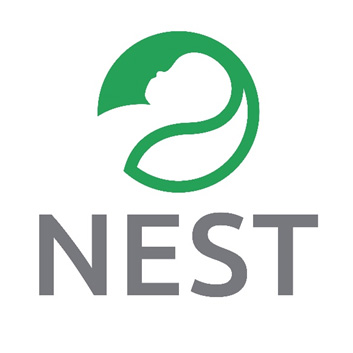
Track Co-Directors: Megan Gray MD, Dr. Rachel Umoren
Faculty mentors: Taylor Sawyer DO, MEd, Zeenia Billimoria MD, Sara Berkelheimer MD
Overview: Educational scholarship is a well-recognized area of academic focus for neonatologists on a clinician-educator career path. The use of simulation methodology to facilitate educational research has seen an exponential rise over the past few years. The Neonatal Education and Simulation-based Training Track provides an opportunity for Fellows interested in pursuing a career as a clinician-educator to gain a strong foundation with educational research. This track is well suited for fellows interested in pursuing leadership positions in graduate medical education, including training program directorship. The Division of Neonatology has established the Neonatal Education and Simulation-based Training (NEST) Program to support academic scholarship and simulation-based research
Current projects:
- Procedural skills training and competency assessment
- Neonatal resuscitation training
- Neonatal airway management
- Virtual reality teamwork training
- Prenatal counseling milestones and training
- Transport and telemedicine systems simulations
- National Neonatology Curriculum
- E-learning
- Disaster training in the virtual environment
- Patient safety and communication curriculum
Track opportunities:
- Graduate-level course in education
- Academic Pediatric Association Educational Scholars Program
- Participation in the University of Washington Center for Leadership and Innovation in Medical Education (CLIME) Program
- Simulation Course through the Seattle Children's Simulation Program
- Simulation Fellowship through the International Pediatric Simulation Society
- Involvement in the International Network for Simulation-based Pediatric Innovation, Research and Education (INSPIRE)
- Research into intubation practices and outcomes via the NEAR4Neos Intubation Database
Neonatal Quality Improvement and Patient Safety
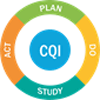 Track Director: Elizabeth Jacobson MD
Track Director: Elizabeth Jacobson MD
Faculty Mentors: Christina Long, DO, Toby Cohen MD, Michael Neufeld MD MPH, Kirti Upadhyay, MD
Overview: Involvement in quality improvement (QI) is a requirement for maintenance of certification by the American Board of Pediatrics and is also a recognized area of scholarly activity. The goal of the QI component of the fellowship program is to ensure that fellows acquire the knowledge and skills required to improve their own and system’s practice continually. The Neonatal Quality Improvement and Patient Safety Track allows fellows to learn the intricacies of conducting quality improvement research. Through involvement with the Vermont Oxford Network (VON) and the Children’s Hospital Neonatal Consortium (CHNC), fellows will learn the power of utilizing a neonatal database for quality improvement efforts. Active engagement in these programs builds fellow’s knowledge and skills. In year one, fellows learn the variety of quality matrices used in the NICU; during years two and three, they lead their own QI initiative with the help of multi-disciplinary teams.
Current projects:
- Pneumothorax Prevention Project across Regional NICU network
- Optimizing teamwork in the NICU & Delivery Room
- Bronchopulmonary dysplasia prevention
- Probiotic use for the prevention of necrotizing enterocolitis
- Gastroschisis care
- Temperature management in the golden hour
- Regional QI Educational Collaborative
Track opportunities:
- Seattle Fellow’s College courses in quality improvement
- Participation in the UW Perinatal Continuous Quality Improvement Team
- Institute for Healthcare Improvement coursework
- Participation in Vermont Oxford Network Annual Quality Congress
- Certificate Program in Patient Safety and Quality, UW Medicine and Seattle Children’s Hospital
- Join a Children’s Hospital Neonatal Consortium (CHNC) work group
Neonatal Bioethics
 Track Director: Elliott Weiss, MD, MSME (Weiss Lab)
Track Director: Elliott Weiss, MD, MSME (Weiss Lab)
Faculty Mentors: Douglas J Opel, MD, MPH (Division of General Pediatrics), Malia Fullerton, DPhil (UW Bioethics and Humanities), Jori F Bogetz, MD (Division of Bioethics and Palliative Care), Benjamin Wilfond, MD (Division of Pulmonology), J. Craig Jackson, MD, MHA ,
Josie H. Amory, MD (Neonatal/Perinatal Palliative Care), Jenn Kett, MD, MA (Seattle Children’s Palliative Care), Brennan Kim, MD (Division of Neonatology)
Overview: The Division of Neonatology has been highly active in bioethics scholarship through division members and through collaborations with scholars from the University of Washington Department of Bioethics and Humanities and Seattle Children’s Hospital Treuman Katz Center for Pediatric Bioethics. Fellows participating in the Neonatal Bioethics Track will have the opportunity to conduct research in bioethics related to neonatal care and will be able to take advantage of the outstanding bioethical resources at the University of Washington and Seattle Children’s Hospital. Research methodologies include qualitative interviews, quantitative surveys, case studies, and conceptual work. Fellows may apply for the Treuman Katz Bioethics Fellowship, a unique opportunity which includes mentored scholarship, education, and ethics consultation experience, as well as formal coursework towards a Master’s in Bioethics. This will prepare them well for a career in academic neonatal bioethics.
Current projects:
- Parental decision-making in the NICU
- Research participation in the NICU
- Use of biases and heuristics in medical decision-making
- Models of shared decision-making
- Neuroethics, including caring for infants with severe neurological impairment
- Ethics of perinatal consultation
Track opportunities:
- Concurrent Clinical Bioethics Fellowship through the Treuman Katz Center for Pediatric Bioethics
- Attendance at the Annual Pediatric Bioethics Conference
- Graduate level coursework in bioethics
- Clinical ethics consultation experience
- Research ethics consultation experience
- Hospital ethics committee involvement
- Participation in combined Neonatal-Obstetric ethics conferences
Parent-Infant Nutrition and Microbiome
Track director(s): Katie Strobel
Faculty: Agnes Chao, Taylor Hendrixson, Rebecca Hoban (Director of Breastfeeding Medicine), Sunny Juul, Krystle Perez, Greg Valentine, and Tommy Wood
Overview: MIND a research and quality improvement group of individuals interested in parent-infant nutrition, human milk, and multi-omic systems biology approaches. The research performed includes animal models, translational research, and clinical research locally and internationally. Our bimonthly meetings discuss nutrition-centric QI, research projects, grant overview and feedback, scientific writing reviews, and journal clubs.
Current projects:
- Biomarkers for early lactation success
- HM microbiome in mother’s milk and donor milk and implications for growth and neurodevelopmental outcomes
- Donor milk for GI malformations
- Maternal, infant, and human milk microbiome in the context of HIV
- Maternal and child health and nutrition locally and globally
- Maternal periodontal disease, the microbiome, and human milk interactions
- Facilitating lactation success in high-risk dyads - clinical research and QI
- Development of lactation curriculum for residents and fellows
- QI projects to optimize use of mother’s own milk in the NICU
- Donor milk use and milk banking in low-resource settings
- Type, timing, and volume of feedings and fluids in very preterm infants and outcomes
- Nutritional database development for NICU infants for future research and QI
- NEC reduction QI work
Track opportunities:
- Joining and presenting at nutritional journal clubs
- Assisting with clinical research in nutrition and human milk - trials or database
- Shadowing with lactation consultants
- Joining working groups for NEC reduction and nutrition at UW, SCH, CHNC, or NEC Society
- Nutritional QI to improve rates of mother’s own milk to improve outcomes and reduce use of donor milk
POCUS
Track director(s): Sarah Kolnik, MD MBA; Sandy Johng, MD MSCE
Faculty: Janessa Law, MD; Elliott Weiss, MD MSME; Katie Strobel, MD, MS; Mihai Puia-Dumitrescu, MD MPH
Overview: Point-of-Care Ultrasound (POCUS) is being readily adopted as standard-of-care in NICUs across the United States and internationally. The use of POCUS is particularly suited for the NICU setting where premature, low birth weight, and critically ill infants benefit from rapid diagnosis of potentially life-threatening conditions at the bedside, enhanced safety and efficiency of procedures, and reduced radiation exposure. The Neonatal POCUS Fellowship Curriculum at Seattle Children’s Hospital and the University of Washington includes didactic and hands-on sessions covering diagnostic and procedural POCUS in the following domains: Vascular Access, Lung, Cardiac, Cranial, Spine, Abdomen, and Airway.
Current projects:
- QI project led by Meghan Rowe, MD (PGY-3) in the UW NICU: Utilizing the Lung Ultrasound Score for Earlier Surfactant Administration
- Research project led by Meghan Rowe, MD (PGY-3) in the UW NICU population: Association between the Lung Ultrasound Score and Clinical Outcomes in Premature Infants
- Cranial POCUS for evaluation of early onset and progression of IVH led by Sarah Kolnik, MD (Co-director of POCUS program)
Past projects:
- Research project led by Stephanie Yeager, MD (2025 fellow graduate): Body Composition Assessment using Point-of-Care Ultrasound (BOCUS)
- Screening Cranial POCUS protocol development and implementation co-led by Sarah Kolnik, MD (Co-Director of POCUS program) and Manjiri Dighe, MD (Professor and Head of Ultrasound at UW School of Medicine)
Track opportunities:
- QI and research projects related to POCUS in the SCH or UW NICUs
- Educational opportunities through regular Quality Assurance sessions
- Teaching opportunities at local and national POCUS workshops
- Networking with national and international POCUS collaborators
Scholarly Activity Timeline
Fellows choose their scholarly focus and type of scholarship (e.g., neonatal neuroscience, global health, clinical research, ethics, public health, education, etc.) early in their first year. To choose an area of scholarship, fellows spend their non-clinical time meeting with the various fellowship program's track directors and selected division and non-division faculty members to discuss potential projects. Once fellows have identified their scholarly focus and mentor(s), this will determine the composition of their Scholarship Oversight Committee (SOC. Scholarly activity generally includes forming a hypothesis-driven research question, planning, and execution of the project, including IRB or IACUC submission as appropriate, data analysis, and publication of the work. Fellows are encouraged to collaborate and contribute to other scholarly activities as bandwidth and interest allow. During their research time, fellows learn to critically evaluate the relevant literature and take relevant coursework, including biostatistics. The division and hospitals have resources to aid fellows including local small grants, statistician support, and clinical research coordinators.
Why should you apply to our fellowship?
The University of Washington and Seattle Children's Hospital Neonatal Perinatal Medicine program is a world leader in clinical care, research, and education. We care for a wonderfully group of patients and families coming from an enormous geographic region. Our faculty are committed to teaching the next generation of Neonatologists. Seattle and the Pacific Northwest are beautifully green, have temperate weather year-round, and has a vibrant local culture.
How to apply?
Applicants must have completed or be on track to complete 3 years of pediatric residency in an ACGME approved residency program. Applicants must be registered with ERAS and the NRMP. Applications will only be considered if submitted through ERAS. Applications will be reviewed over the 2-3 weeks after they become available to programs. We encourage interested candidates to apply early. If your application is going to arrive after that time period, please email the program in addition to submitting through ERAS for consideration. In your application, please include your personal statement, CV, and 3-4 letters of recommendation in addition to the basic ERAS information. One letter of recommendation should come from your residency program leadership. We encourage having a letter of recommendation from your research/QI mentor(s) to speak to your contributions and skills in this area. We expect at least one letter of recommendation from a Neonatologist to speak to skills relevant to the NICU.
For more information for prospective fellows please visit the University of Washington GME website. This site contains our relevant GME policies for fellows, information about living and working in Seattle, and links to our Resident & Fellow Union agreement.
How do we review applicants?
The University of Washington and Seattle Children's Neonatology program is committed to holistic review of all applicants. A committee of educators with training in holistic evaluation techniques review every application in its entirety. We review applicants for experiences in the clinical space, research skills and mission, advocacy and volunteer efforts, contributions to the hospital and unit efforts, and individual strengths. We want every applicant to thrive in their fellowship. We aim to identify candidates who are likely to thrive in our fellowship and whose missions are able to be well supported by our local resources.
Who thrives in our fellowship?
Our Neonatology program embraces learners who believe that medicine is a team effort and that life-long learning is the key to excellence. Our division and faculty members are mission driven and we are looking for applicants who have a strong personal goal to improve care for infants. Our fellows note that collaborative teamwork and being self-motivated to meaningfully contribute to the field are key characteristics to their success in our program.
Who can I contact with questions about the application process?
Please email our program coordinator Tracy Anderson for any questions; she is happy to connect you with information or people as needed. Email Tracy at: tracy.anderson@seattlechildrens.org
Seattle Children's Hospital Neonatal Intensive Care Unit (SCH NICU)
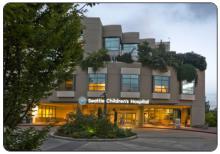
The Neonatal Intensive Care Unit at Seattle Children’s Hospital has 48 Level IV beds and additional acute care beds for convalescing infants. The Seattle Children’s NICU admits critically ill neonates from a multi-state area including Washington, Wyoming, Alaska, Montana, and Idaho, requiring a higher level of subspecialty and multidisciplinary care. Common diagnoses include congenital diaphragmatic hernia, necrotizing enterocolitis, meconium aspiration syndrome, bronchopulmonary dysplasia, gastroschisis, perinatal infection, persistent pulmonary hypertension, myelomeningocele, life-threatening malformations, genetic diagnoses, and hypoxic-ischemic encephalopathy. Services provided include extracorporeal membrane oxygenation (ECMO), therapeutic hypothermia, continuous renal replacement therapy (CRRT), hemo- and peritoneal dialysis, pediatric medical and surgical subspecialty consultation. Fellows play a key role in accomplishing the clinical mission and rotate between teams for service. On call they aid in supporting all the patients and admissions. Dedicated occupational and physical therapists provide feeding and developmental care to NICU patients. NICU discharge coordinators collaborate with the NICU team and families to safely transition patients to their homes.
University of Washington Neonatal Intensive Care Unit (UWMC NICU)
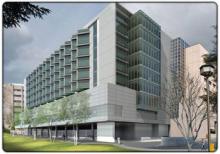
This 50-bed unit includes 42 single-bed rooms with space for a family member to stay near their infant, several additional rooms for multiples, and an integrated OR for surgical procedures. Over 95% of admissions are inborn from the UWMC High-Risk Perinatal Program, one of the highest risk obstetric services in the nation, and has special expertise in managing the most fragile growth-restricted and premature fetuses and newborns. Patient care is managed in a multidisciplinary fashion by highly trained nurses, respiratory therapists, neonatal dieticians, a neonatal pharmacist, physical therapists, speech language pathologists, social worker, neonatal advanced practice providers, pediatric residents, neonatal fellows, and neonatal faculty attendings. Delivery room resuscitation duties are shared by the NICU and newborn nursery medical teams. The attending neonatologist and neonatal fellows direct daily patient care rounds. Neonatal fellows have ample opportunity to perfect and teach resuscitation skills, and work closely with obstetricians and maternal fetal medicine specialists. Fellows also provide prenatal consultations to families expecting very preterm delivery or infants with complex fetal conditions.
UW Medicine Team Improving the Odds for Extremely Preterm Babies
University of Washington and Seattle Children's NICU Tour
Fellowship Leadership
Megan Mariner Gray, MD
Associate Professor Program Director, Neonatal‐Perinatal Medicine Fellowship Training Program Associate Division Head of Education Co-Director, NEST Program
Kendell R German, MD
Associate Professor Director of Research, Infant Development Follow‐Up Clinic Associate Program Director, Neonatal-Perinatal Medicine Fellowship
Taylor L Sawyer, DO, MEd, MBA
Division Head and William Alan Hodson Endowed Chair of Neonatology Professor
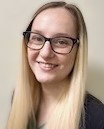 | Andrea Chobrutskiy, MD (2025-28) |
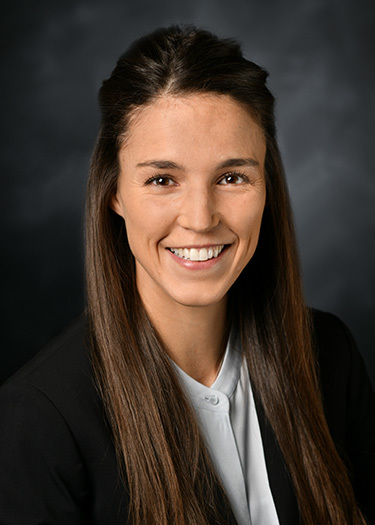 | Hannah Benjamin, MD (2025-28) |
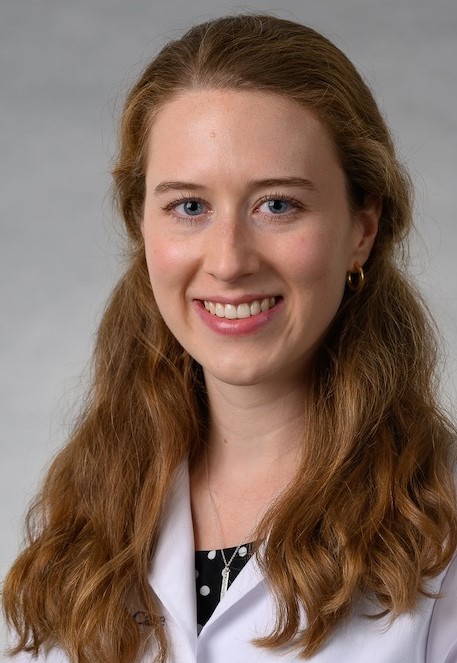 | Sarah Bibby, MD (2025-28) |
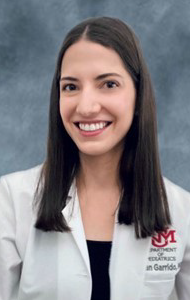 | Megan Garrido, MD (2024-2027) |
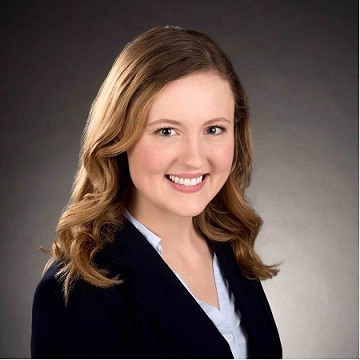 | Rachel LaFontaine, MD (2024-27) |
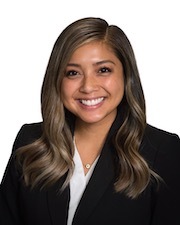 | Valerie Teano, MD (2024-27)
|
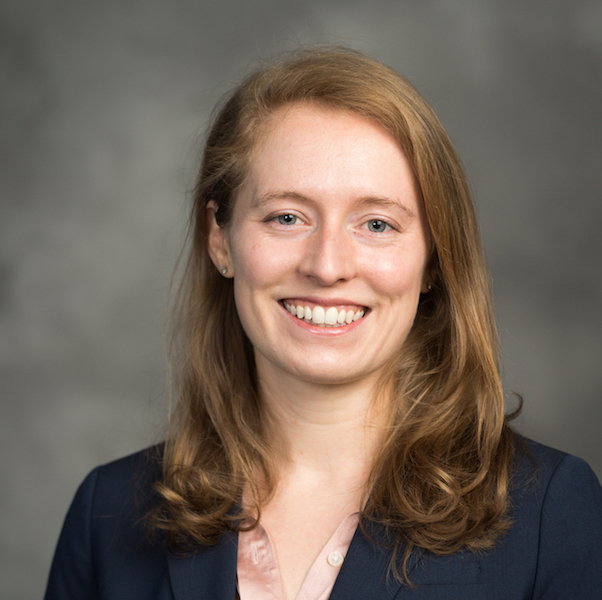 | Meghan Rowe, MD (2023-2026) |
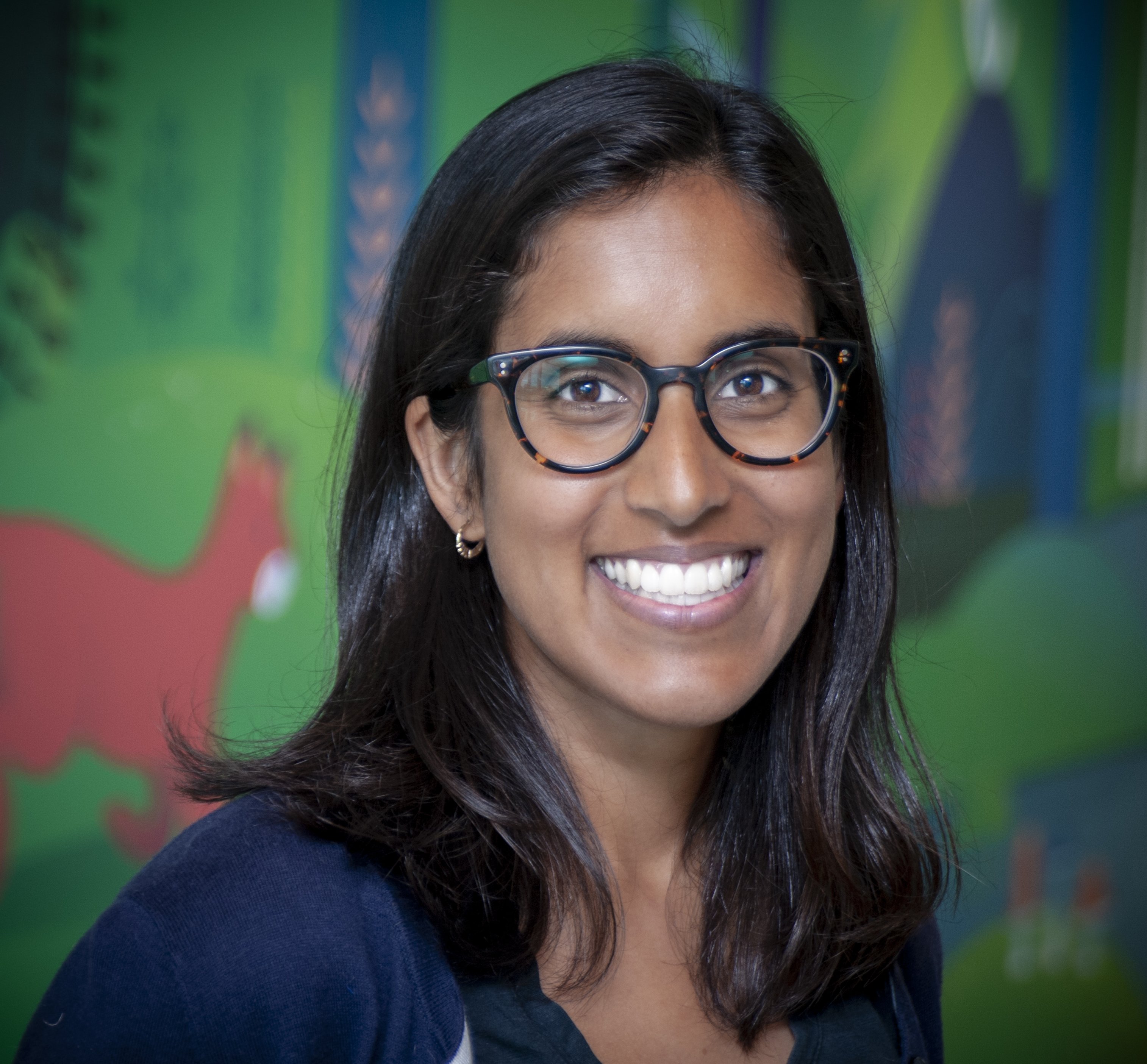 | Henna Shaikh, MD (2023-2026) |
Recent Alumni
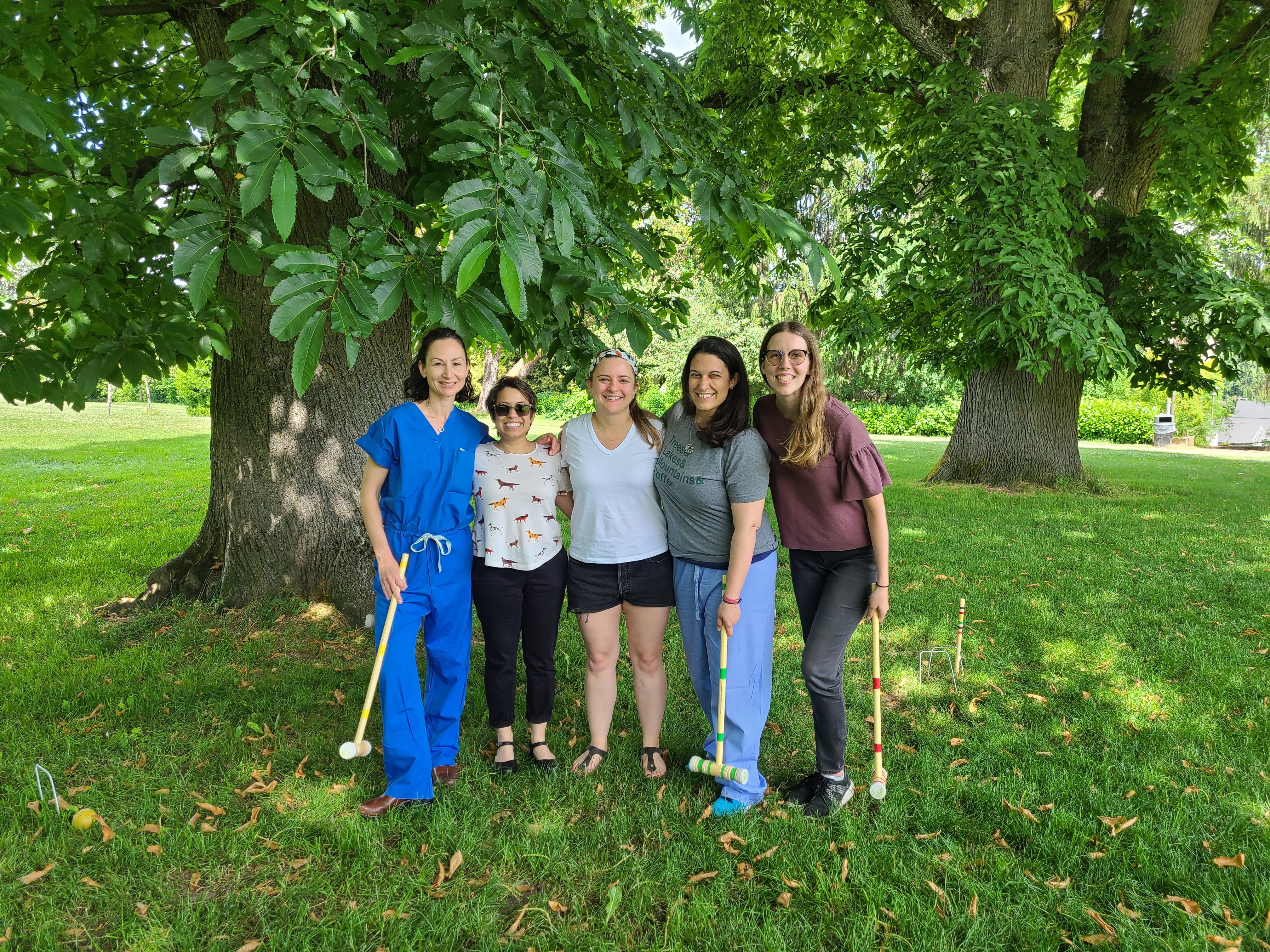
Our fellows for 2022, Brennan Kim not pictured as she was providing outstanding patient care.
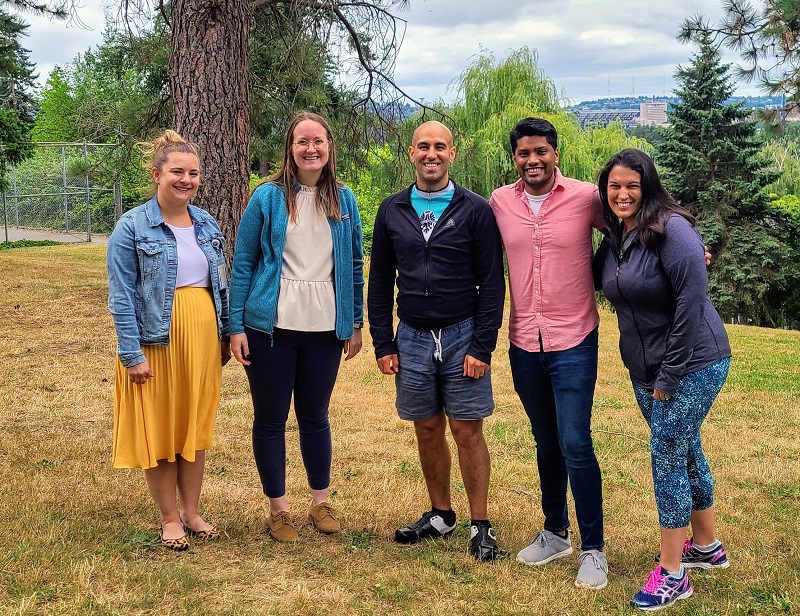
Our Fellows 2021, Sara Neches not pictured as she was providing outstanding neonatal patient care.
Sahar Rahiem, MD, MHS (2022-2025)
Stephanie Yeager, MD (2022-2025)
Brennan Kim, MD MA (2021-2024)
Devin McKissic, MD (2021-2024)
Allison Lyle, MD MA (2020-2023)
Sara Neches, MD (2020-2023)
Benjamin J. S. al-Haddad, MD PhD MSc (2019-2022)
Rushabh Shah, MD (2019-2022)
Katie Kenningham, MD (2018-2021)
Sarah Kolnik, MD (2018-2021)
Brianna Brei, MD (2017-2020)
Shubha Setty, MD (2017-2020)
Megan Mariner Gray, MD
Associate Professor Program Director, Neonatal‐Perinatal Medicine Fellowship Training Program Associate Division Head of Education Co-Director, NEST Program
4800 Sand Point Way NE
Box 359300 M/S FA.2.113
Seattle, WA 98105
Kendell R German, MD
Associate Professor Director of Research, Infant Development Follow‐Up Clinic Associate Program Director, Neonatal-Perinatal Medicine Fellowship
EmailTracy Anderson
ACGME Fellowship Program Coordinator
Seattle Children’s Hospital
4800 Sand Point Way NE
Mailstop FA.2.112
Seattle, WA 98105

